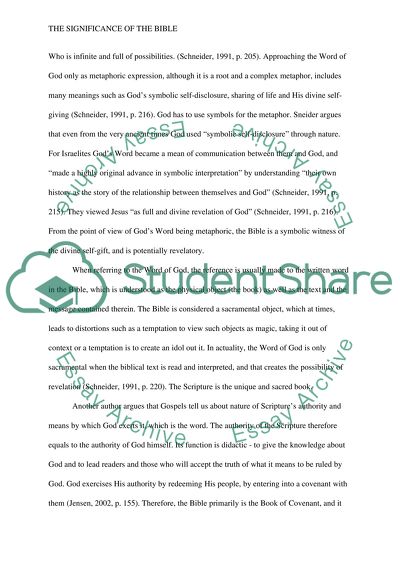Cite this document
(“The Significance of the Bible for Christian Theology Essay”, n.d.)
Retrieved from https://studentshare.org/religion-and-theology/1445466-what-is-the-significance-of-the-bible-the
Retrieved from https://studentshare.org/religion-and-theology/1445466-what-is-the-significance-of-the-bible-the
(The Significance of the Bible for Christian Theology Essay)
https://studentshare.org/religion-and-theology/1445466-what-is-the-significance-of-the-bible-the.
https://studentshare.org/religion-and-theology/1445466-what-is-the-significance-of-the-bible-the.
“The Significance of the Bible for Christian Theology Essay”, n.d. https://studentshare.org/religion-and-theology/1445466-what-is-the-significance-of-the-bible-the.


